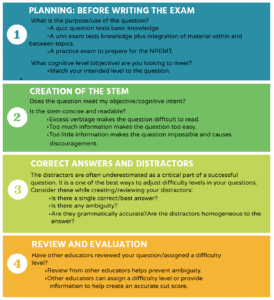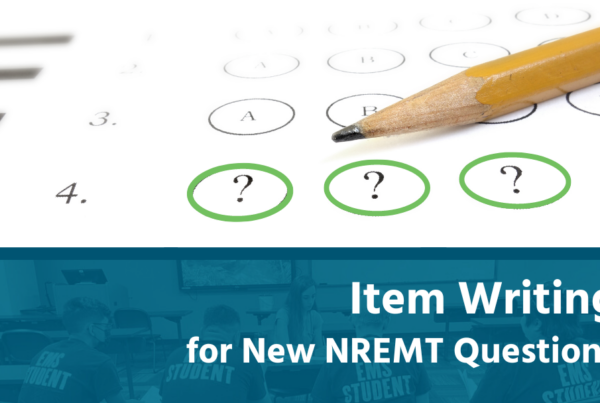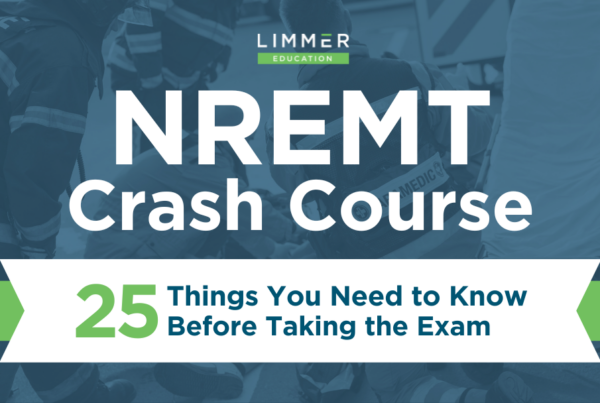It is our job to provide students with questions that most closely mimic the type of question they see on the NREMT. We pride ourselves on the quality of our questions that make students have to critically think, apply their knowledge and make decisions – just like on the national certification exam and in the field. This can sometimes frustrate a student who has come from a class where their exams were simple recall questions or poorly conceived questions.
As an Educator, you want your students to be successful in all their exams and be an excellent provider in the field. One of the best ways to do this is to provide them with challenging exams that test their knowledge and push them out of the memorization stage.
With this in mind, the following guide can be used to help create effective exam items. (NOTE: You can also download this guide)
1 Planning
What is the purpose/use of the question?
- A quiz question tests basic knowledge
- A unit exam tests knowledge plus integration of material within and between topics.
- A practice exam to prepare for the NREMT.
What cognitive level (objective) are you looking to meet?
- Match your intended level to the question.
2 Creation of the Stem
Does the question meet my objective/cognitive intent?
Is the stem concise and readable?
- Excess verbiage makes the question difficult to read.
- Too much information makes the question too easy.
- Too little information makes the question impossible and causes discouragement.
3 Correct Answer and Distractors
The distractors are often underestimated as a critical part of a successful question. It is one of the best ways to adjust difficulty levels in your questions. Consider these while creating/reviewing your distractors:
- Is there a single correct/best answer?
- Is there any ambiguity?
- Are they grammatically accurate?
- Are the distractors homogeneous to the answer?
- Do they make the student think/discriminate?
4 Review/Evaluation
Have other educators reviewed your question/assigned a difficulty level?
- Review from other educators helps prevent ambiguity.
- Other educators can assign a difficulty level or provide information to help create an accurate cut score.
Looking more item writing tips? Be sure to check out these blog posts as well:
— Item writing tips for better exam questions



